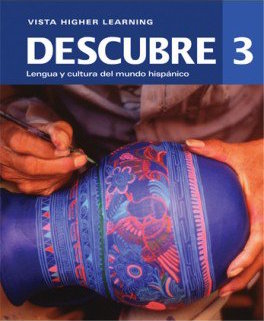
All Solutions
Page 358: Despues de leer
|TRUE |FALSE |SENTENCE |
|–|–|–|
| |**X** |1. Suramérica manifiesta poca variedad lingüística. / *South America shows little linguistic variety.* |
|**X** | |2. Por lo general, en Suramérica solo las poblaciones indígenas hablan una lengua indígena. / *Generally speaking, in South America, only the indigenous populations.*|
| | **X**|3. La mayoría de la población paraguaya es de origen guaraní. / *The majority of the Paraguayan population is of Guarani origin.* |
| |**X** |4. El 50% de la población del Paraguay es monolingüe en español. / *50% of Paraguay’s population is monolingual in Spanish.* |
|**X** | |5. La Constitución de 1992 declaró que el Paraguay es un país pluricultural y bilingüe. / *The 1992 Constitution declared that Paraguay is a pluricultural and bilingual country.* |
|**X** | |6. Existe una larga tradición popular de narrativa oral en guaraní. / *There is a long popular tradition of oral storytelling in Guaraní.*|
| |**X** |7. Augusto Roa Bastos escribió sus cuentos completamente en español. / *Augusto Roa Bastos wrote his stories entirely in Spanish.* |
| |**X** |8. La moneda del Paraguay se llama asunción. / *Paraguay’s currency is called asunción.* |
1. Suramérica manifiesta poca variedad lingüística. / *South America shows little linguistic variety.*
* **Suramérica posee una gran variedad lingüística.** / *South America has a great linguistic variety.*
* **La mayor parte de los paraguayos es de origen mixto.** / *Most Paraguayans are of mixed origin.*
* **El 50% de la población en Paraguay es bilingüe.** / *Fifty percent of the population in Paraguay is bilingual.*
* **Augusto Roa Bastos implemento expresiones del guaraní en sus textos.** / *Augusto Roa Bastos implemented Guarani expressions in his texts.*
* **En realidad, la moneda paraguaya se llama guaraní.** / *Actually, the Paraguayan currency is called guaraní.*
1. ¿Cuáles son algunas de las señales de que una lengua prospera? / *What are some of the signs that a language is thriving?*
* **se debe a diversos factores sociales y culturales de los hablantes de la la lengua, si estos lo son, la lengua también lo será.** / *is due to various social and cultural factors of the speakers of the language, and if they are, the language will be as well.*
* **Es especial porque los conquistadores trataron de sustituirla por el español pero no lo lograron del todo.** / *It is special because the conquistadors tried to replace it with the Spanish language but were not entirely successful.*
* **Por que era el lenguaje utilizado previamente a la llegada de los conquistadores.** / *Because it was the language used prior to the arrival of the conquistadors.*
* **Habla de los sectores correspondientes a estos grupos, los vencedores son los conquistadores y los perdedores son los nativos.** / *It talks about the sectors corresponding to these groups, the winners are the conquerors and the losers are the natives.*
* **Así se le dice a la mezcla del guaraní con algunas palabras al español y es utilizada por un gran parte de la población.** / *This is the name given to the mixture of Guarani with some Spanish words and is used by a large part of the population.*
* **La polenta es un platillo típico en Paraguay y se refiere a que cuando hay demasiada gente haciendo la misma acción no hay un control de la situación.** / *Polenta is a typical dish in Paraguay and refers to the fact that when there are too many people doing the same action there is no control of the situation.*
* **Este se refiere a que nuestro hogar es nuestro espacio personal donde podemos estar seguros de ser nosotros mismos.** / *This refers to our home being our personal space where we can be sure to be ourselves.*
* **Hace referencia a que no debemos de poner ideas nuestras o nuestros problemas sobre los demas.** / *It refers to the fact that we should not put our own ideas or problems on others.*
1. ¿Hay algún dicho en español o en ingles que tenga un mensaje similar? / *Is there a saying in Spanish or English that has a similar message?*
* **Sí, hay un en español que dice “Hecha la ley, hecha la trampa” que en ingles sería “Every law has its loophole” que hacen referencia a que siempre hay una forma de evitar una responsabilidad, aunque sea de una mala manera.** / *Yes, there is one in Spanish that says “Hecha la ley, hecha la trampa” which in English would be “Every law has its loophole” which refers to the fact that there is always a way to avoid liability, even if it is in a bad way.*
* **Hacen referencia a usos y costumbres propias de cada región, como lo pueden ser los modismos.** / *They refer to uses and customs of each region, such as slang or idioms.*

